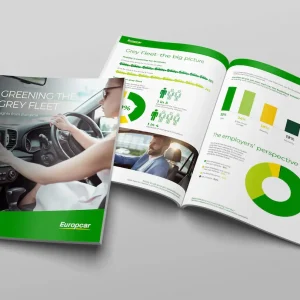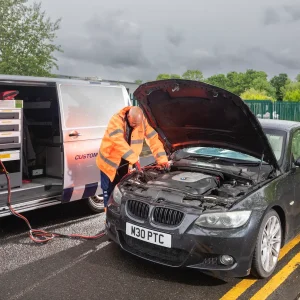The importance of managing user-chooser drivers effectively is constantly rising up the business agenda.
Companies of all sizes are more and more aware of the imperative to take charge of their cost and carbon efficiencies as they adapt to changing market conditions.
Yet discretionary, ‘user-chooser’ business travel continues to be highly significant within many organisations.
Sometimes this is cultural to enable employees to choose the options that best suit them. Or it can be the result of restricted vehicle availability.
Whatever the reason, discretionary travel can reduce a company’s profitability while simultaneously increasing the amount of carbon dioxide generated when older grey fleet vehicles are chosen.
As we move into the winter months, the importance of managing this grey fleet of employees using their own personal cars for work has never been greater, due to the potential for these to not be as well-maintained as rental or leased vehicles.
This makes it essential for companies to have the best possible overview of all components of their business travel, and this requires analysing travel-related data.
Travel policies can then be reviewed and updated based on the findings of both this data and current and future business priorities. This ensures that every fleet driver – and particularly user-choosers – fully understand what’s expected of them.
Technological advancements are also going to play an increasingly important role here.
It is now possible for all fleets to capture the data they need to understand where they can harness economies and drive more sustainable mobility habits among their business travellers.
We have found that compliance and booking platforms like our Enterprise Travel Direct (ETD), which enable detailed data capture on the scale and scope of business travel, are invaluable in this respect.
These platforms can be likened to a fleet driver’s “personal journey planning consultant” because they also ensure the best-informed decision about any vehicle chosen is consistently made prior to travelling.
Significantly, these technological developments are becoming available to fleets at a time when the growing importance of car travel for business is driving up demand for rental in general.
We’re witnessing a massive increase in enquiries from companies based in the UK and Europe looking to cut their grey fleet miles.
While there is growing capacity among some rental companies to respond to these last-minute demands, business users will be able to take advantage of more options if they plan journeys a couple of days in advance.
Forward planning has the added advantage that companies can also add an approval layer and consider other cost- and emission-saving options, such as employee ridesharing.
Changing market conditions now mean that it’s essential for organisations to plan using the most current, relevant data possible and implemented in the most appropriate travel policy.
This will ultimately lead to better travel choices for both user-chooser drivers and every other business traveller as well as their employers.
Paul McCorkell is director of business rental UK & Ireland at Enterprise





